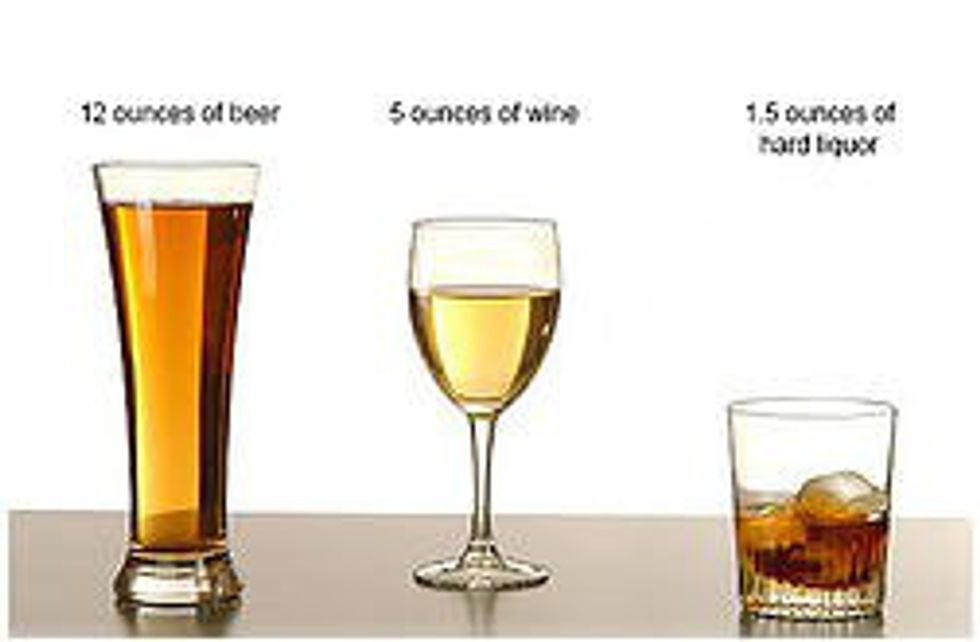There has long been a stigma attached to women and drinking. It wasn’t considered proper for women to go out to bars, salons and taverns hundreds of years ago because of the public use of alcohol.
Even today, if you google “Women and Alcohol,” you’ll get websites upon websites about female alcoholics and drunks committing crimes. Perhaps this mentality comes from the possibility of fetal alcohol syndrome in children whose mothers drank while pregnant. It has certainly been perpetuated by the recent CDC announcement.
While you should never drink while with child, women shouldn’t feel pressured out of drinking otherwise if they are of legal age and want to do so. There are some facts about alcohol you should be aware of, though.
How much should you drink?
It is recommended that men should have no more than about 3-4 units of alcohol a day, while women should have no more than 2-3. One unit of alcohol consists of 12 ounces of beer, 5 ounces of wine, or 1.5 ounces of spirits. Anything more is considered “binge drinking”.
Though binge drinking is a common occurrence on college campuses, it is fairly rare among other adults. How fast you become intoxicated depends on factors such as your height and weight, your genetic makeup, how much food you’ve eaten that day, and how fast you’re drinking.
Why does alcohol affect men and women differently?
There are several reasons why women process alcohol differently than men. The first reason is body fat: women generally have lower body weights than men. We tend to have less water and more fatty tissues than men do; fat retains alcohol better than muscle, and water helps to dilute alcohol faster. Because of this, alcohol remains in higher concentrations for longer periods in women’s bodies.
Men v. Women
In addition to having less water and more fat, women have lower levels of the enzymes that metabolize alcohol through the body: alcohol dehydrogenase and aldehyde dehydrogenase. This allows for more alcohol to be absorbed into their bloodstreams than men. Women also have the detriment of their menstrual cycle affecting their level of intoxication, because hormone levels can affect how you process alcohol.
What are the short-term effects of alcohol for women?
Alcohol has A LOT of fructose, as most alcohol beverages are very sugary, and are generally mixed with liquids like soda or fruit juice. On top of already having a lot of calories, the fructose can make you hungry. So, binge drinking over time can lead to weight gain. This isn’t the worst thing in the world, but it’s definitely something to be considered, especially if you’re on a specialty diet.
Drinking can also cause dehydration, be it over one night or for lengths of time. That’s the worst part of a hangover for people. The dry mouth, the headache, drowsiness, dizziness: it all comes from dehydration. This feels awful when it’s after just one instance of heavy drinking, but can be really bad for your skin and your organs over time.
Additionally, alcohol is a depressant. This can disrupt your sleep schedule. While it makes you tired, it suppresses your melatonin production, which is the hormone that allows you to have REM sleep. With less REM sleep, you’re exhausted the next day. Also, it can put you in a bad mood. The depressant qualities can make you more ornery or more morose. These complications can negatively impact a mood or anxiety disorder.
Some long term effects for women who drink often?
Heavy drinking can increase the risk of breast cancer. The alcohol can increase levels of estrogen and other hormones associated with the hormone receptor that’s positive for breast cancer. Alcohol, if used often over long periods of time, can also increase the risk for breast cancer by slightly damaging DNA in cells.
The odd estrogen levels and slightly damaged DNA cells can also lead to fertility complications, and can make it very difficult to conceive over time. The dehydration and regular intake of high fructose can also put a strain on the heart and potentially lead toheart disease.
"But I still want to drink!!"
Again, if you're of age, you shouldn’t feel discouraged to drink because of these factors or because of social stigma. HOWEVER, you should make sure to be careful when you drink and try to avoid drinking to excess. Some solid tips for drinking with care include:
- Eat food before or while you’re drinking.
- Don’t down your drink quickly, and space your drinks over a period of time.
- Drink water between alcoholic beverages.
- Keep track of how much you’re drinking.
- Never drink and drive (even if it's only a little bit!)
- Don’t combine drugs and alcohol.
- Don’t ever drink while pregnant.
- Know your limit and plan accordingly.






























